 | TODAY IN SCIENCE HISTORY NEWSLETTER - 25 JUNE |
| Feature for Today |
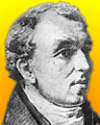 On 25 Jun 1799, David Douglas was born, a Scottish biologist who brought back to Britain from his botanical expeditions abroad some 240 plant species. The familiar garden flower, the lupin, was established in Britain through his efforts. On 25 Jun 1799, David Douglas was born, a Scottish biologist who brought back to Britain from his botanical expeditions abroad some 240 plant species. The familiar garden flower, the lupin, was established in Britain through his efforts.In the book David Douglas, Botanist at Hawaii (1919), the compiler provided Extracts from A Brief Memoir of the Life of David Douglas by Sir William Jackson Hooker, which you may read for more information on the exploits of this remarkable botanist who accomplished so much in his short life. |
| Book of the Day | |
 On 25 Jun 1799, David Douglas was born, the Scottish biologist whose name is remembered for the Douglas fir tree, one of 240 species of plants he established in Britain following botanical expeditions abroad. He died young and tragically - at age 35 he was gored to death by a wild bull already in the cattle trap into which he fell by accident. Today's Science Store pick is: Traveler in a Vanished Landscape: The Life and Times of David Douglas, by William Morwood. Available Used from $0.92 (as of time of writing). On 25 Jun 1799, David Douglas was born, the Scottish biologist whose name is remembered for the Douglas fir tree, one of 240 species of plants he established in Britain following botanical expeditions abroad. He died young and tragically - at age 35 he was gored to death by a wild bull already in the cattle trap into which he fell by accident. Today's Science Store pick is: Traveler in a Vanished Landscape: The Life and Times of David Douglas, by William Morwood. Available Used from $0.92 (as of time of writing).Yesterday's pick: A Different Approach to Cosmology, by Fred Hoyle, G. Burbidge and J. V. Narlikar. For picks from earlier newsletters, see the Today in Science Science Store home page. | |
| Quotations for Today | |
 | "(Asteroids are) the vermin of the skies." (Asteroids can block objects of interest on astronomical photographs.) |
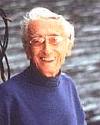 | "From birth, man carries the weight of gravity on his shoulders. He is bolted to earth. But man has only to sink beneath the surface and he is free." |
 | "I am absolutely enraptured by the atmosphere of a wreck. A dead ship is the house of a tremendous amount of life—fish and plants. The mixture of life and death is mysterious, even religious. There is the same sense of peace and mood that you feel on entering a cathedral." |
| QUIZ | |
| Before you look at today's web page, see if you can answer some of these questions about the events that happened on this day. Some of the names are very familiar. Others will likely stump you. Tickle your curiosity with these questions, then check your answers on today's web page. | |
| Births | |
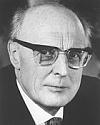 |  Johannes Hans Daniel Jensen, born 25 Jun 1907, was a German physicist who proposed a theory for the structure of protons and neutrons within the nucleus which won him a share of the 1963 Nobel Prize in physics. Johannes Hans Daniel Jensen, born 25 Jun 1907, was a German physicist who proposed a theory for the structure of protons and neutrons within the nucleus which won him a share of the 1963 Nobel Prize in physics. What is the structure he proposed for the nucleus? What is the structure he proposed for the nucleus? |
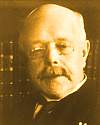 |  On 25 Jun 1864, Walther Hermann Nernst was born, who was a German scientist who was one of the founders of modern physical chemistry. In 1906, Nernst showed that it is possible to determine the equilibrium constant for a chemical reaction from thermal data, and in so doing he formulated what he himself called the third law of thermodynamics. This states that a certain quantity approaches zero as the temperature goes towards absolute zero. For this, he was awarded the 1920 Nobel Prize in Chemistry. On 25 Jun 1864, Walther Hermann Nernst was born, who was a German scientist who was one of the founders of modern physical chemistry. In 1906, Nernst showed that it is possible to determine the equilibrium constant for a chemical reaction from thermal data, and in so doing he formulated what he himself called the third law of thermodynamics. This states that a certain quantity approaches zero as the temperature goes towards absolute zero. For this, he was awarded the 1920 Nobel Prize in Chemistry. What is this thermodynamic quantity? What is this thermodynamic quantity? |
| Deaths | |
 |  A certain French naval officer, (1910-1997) was well-known as oceanographer, marine biologist and ocean explorer, known for his extensive underseas investigations. He was co-inventor of the aqualung which made SCUBA diving possible. In 1945 he founded the French Navy's Undersea Research Group. A certain French naval officer, (1910-1997) was well-known as oceanographer, marine biologist and ocean explorer, known for his extensive underseas investigations. He was co-inventor of the aqualung which made SCUBA diving possible. In 1945 he founded the French Navy's Undersea Research Group.  Can you name this man? Can you name this man? |
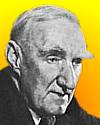 |  Sir John Boyd Orr (1880-1971) was a Scottish scientist and authority on nutrition. In 1936, he published a report, Food, Health and Income, a dietary survey by income groups made during 1935. It showed that the cost of a diet fulfilling basic nutritional requirements was beyond the means of half the British population and that 10 percent of the population was undernourished. He was director general of the United Nations Food and Agriculture Organization (1945-48). He was awarded a Nobel Prize in 1949 for his efforts to eliminate world hunger. Sir John Boyd Orr (1880-1971) was a Scottish scientist and authority on nutrition. In 1936, he published a report, Food, Health and Income, a dietary survey by income groups made during 1935. It showed that the cost of a diet fulfilling basic nutritional requirements was beyond the means of half the British population and that 10 percent of the population was undernourished. He was director general of the United Nations Food and Agriculture Organization (1945-48). He was awarded a Nobel Prize in 1949 for his efforts to eliminate world hunger.  Which category of the Nobel Prize was he awarded ? Which category of the Nobel Prize was he awarded ? |
| Events | |
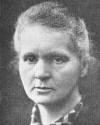 |  In 1903, Marie Curie went before the examination committee for her Ph.D. In 1903, Marie Curie went before the examination committee for her Ph.D. How many years passed before she was awarded her first Nobel Prize? How many years passed before she was awarded her first Nobel Prize? |
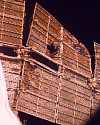 |  In 1997, the Russian space-station suffered a near-fatal mishap when a Progress ferry being docked via remote control accidentally rammed into the Spektr science module, putting a hole in the pressure vessel and damaging its solar arrays beyond use. To salvage the station, which consisted of a core, a connecting node, and five science modules, crew members severed electrical and data connections between Spektr and the rest of the station and then sealed off the module. They saved the station but lost about half of their electrical power. In 1997, the Russian space-station suffered a near-fatal mishap when a Progress ferry being docked via remote control accidentally rammed into the Spektr science module, putting a hole in the pressure vessel and damaging its solar arrays beyond use. To salvage the station, which consisted of a core, a connecting node, and five science modules, crew members severed electrical and data connections between Spektr and the rest of the station and then sealed off the module. They saved the station but lost about half of their electrical power. What is the name of this space station? What is the name of this space station? |
| Answers |
When you have your answers ready to all the questions above, you'll find all the information to check them, and more, on the June 25 web page of Today in Science History. Or, try this link first for just the brief answers. Fast answers for the previous newsletter for June 24: tau; steady-state; Wernher von Braun; Samuel Clemens (the author known as Mark Twain). |
| Feedback |
 If you enjoy this newsletter, the website, or wish to offer encouragement or ideas, please send feedback by using your mail reader Reply button. If you enjoy this newsletter, the website, or wish to offer encouragement or ideas, please send feedback by using your mail reader Reply button. |
--
If you do not want to receive any more newsletters, Unsubscribe
To update your preferences and to unsubscribe visit this link

Δεν υπάρχουν σχόλια:
Δημοσίευση σχολίου